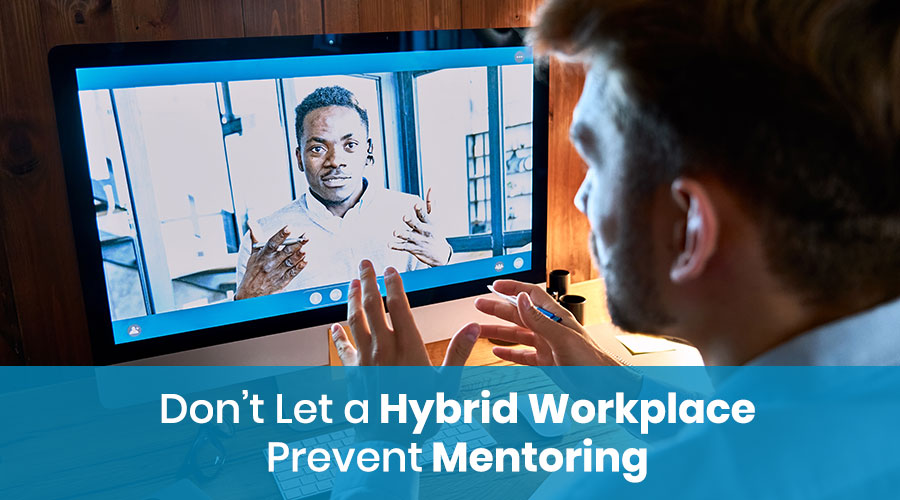A new year provides the perfect opportunity for facility managers to affirm their intent to implement a mentoring plan for their staff. The concept of mentoring often is seen as a “shuttering moment” for managers, even in the perfect work environment where staff are physically interacting with each other and their bosses daily. What should they do when remote working has become the standard and staff rarely see their bosses, let alone each other except in the virtual word? The shuttering moment may turn into outright panic.
The most frequent complaints from facility management staff associated with remote work activity include:
- Limited communication one-on-one with other staff and their boss.
- Limited networking with client groups that are not familiar with staff skills or customer service orientation.
- Limited opportunity for inexperienced staff to display skills/talents in settings where their boss can evaluate; and
- Limited exposure to new positions or opportunities for promotion and advancement.
While mentoring cannot fix all the above issues, it can significantly mitigate them and help strengthen the overall distance work environment, but only if a manager is willing to devote the time and effort to the mentoring process.
CCC/The Mentoring Company research revealed mediocre mentoring relationships occur when there is an unstructured process and no specific attention to mentoring skills applied by managers. Participants become frustrated and disappointed in a distance mentoring program that does not work. When mentoring skills and a structured process are applied, there is a positive result for staff and the organization.
Creating a mentoring plan
The four steps to creating a mentoring plan are important and should be followed by managers.
Step 1: Define the Mentoring Goals. It is important to limit the number of goals for the mentoring plan or it will be a set-up for failure. The plan needs to focus on a few targeted goals, such as:
- Developing middle managers;
- Developing new managers;
- Exposing inexperienced staff to customers and corporate culture; and
- Strengthening intergenerational sharing of skills and ideas.





